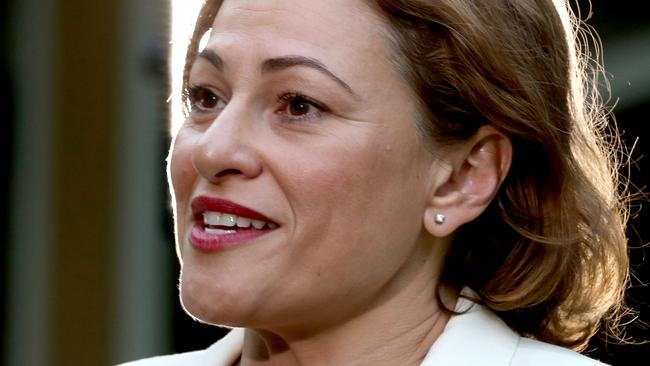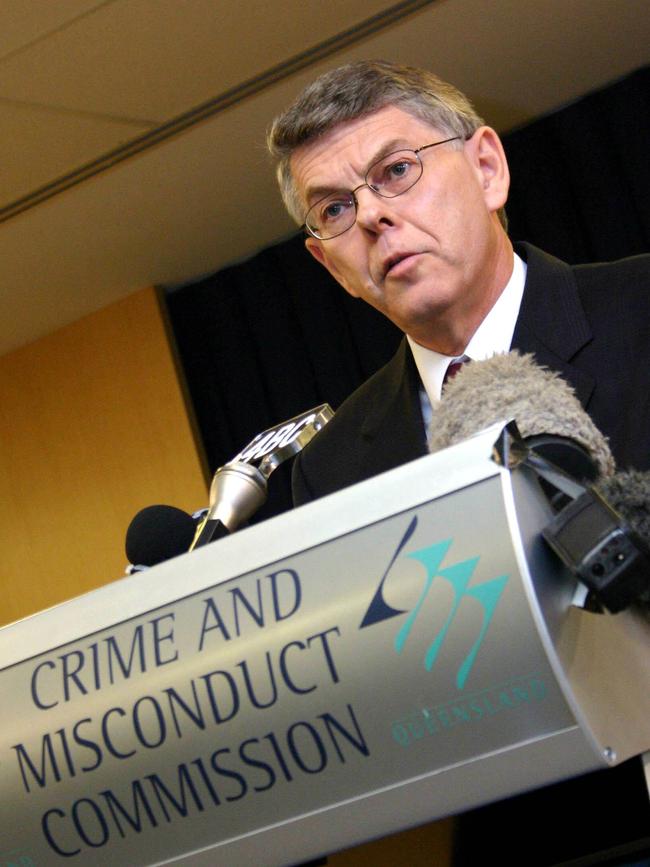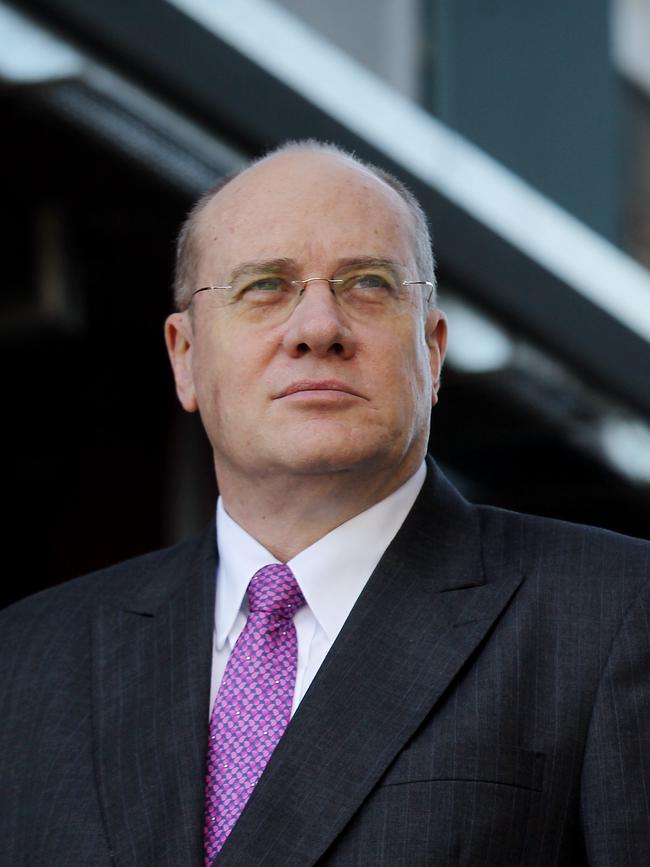Jackie Trad battles to keep muzzle on Crime and Corruption Commission changes
Former Queensland deputy premier Jackie Trad argues handing the state’s anti-corruption commission the powers to report on its investigations into public officials risks making the watchdog a ‘participant in the political process’.

Former Queensland deputy premier Jackie Trad says giving the state’s anti-corruption commission the power to report on its investigations into public officials risks making the watchdog a “participant in the political process”.
Explosive reports into Ms Trad and former public trustee Peter Carne were suppressed by a landmark High Court decision last year, and Crime and Corruption Commission head Bruce Barbour has been seeking urgent law changes to allow the release of both investigative reports.
The state government has for seven months stalled on giving the CCC powers it has asked for, with Premier Steven Miles instead appointing former chief justice Catherine Holmes to lead an independent review into the watchdog’s reporting powers.
In a submission to Justice Homes’ review, made on behalf of Ms Trad, top silk Angus Scott KC wrote that handing the CCC the reporting powers it has requested would put it in the position of “ investigator, prosecutor and adjudicator over allegations which have profound impacts on the reputations of public officials”.
“Empowering the CCC to make public findings – especially of a normative kind – about public officials risks making the CCC a participant in the political process, whereby its ‘judgment’ on questions of political interest may be weaponised by political actors and become influential over electoral outcomes and government decision-making,” the submission reads.
Former watchdog heads Brendan Butler and Ross Martin both implored government in their submissions to back law changes to allow the CCC to publicly report on its investigations into public servants and politicians.
Head of the then-Crime and Misconduct Commission from 1998 to 2004 and counsel assisting the 1989 Fitzgerald inquiry, Judge Butler said after the High Court decision, the CCC had been denied the ability to effectively report on corruption in the public sector.
“Legislative amendment is required,” his submission reads.
“The prevention and deterrence of future corrupt behaviour is best achieved by ensuring the public sector workforce, politicians and general public are fully informed about the nature and extent of corruption which has been detected.
“Public reports can achieve that if they are able to fully demonstrate the extent of detected corruption and to highlight why there is a real risk of its continuation or recurrence.”

Mr Barbour has repeatedly insisted law changes must be retrospective to allow release of its reports into Ms Trad and Mr Carne, as well as ensuring legal action was not taken against the CCC over previous reports it had tabled in parliament.
Mr Martin, who led high-profile prosecutions against corrupt former Labor minister Gordan Nuttall and surgeon Jayant Patel before being appointed CMC head in 2012, agreed law changes should be retrospective.
“These matters can be of great public significance,” he wrote.
The Trad report, finalised in early 2021, stemmed from an investigation into the 2019 appointment of her under treasurer Frankie Carroll, but was widened into a probe of recruitment across the bureaucracy since Labor came to power in 2015.
It is understood the report did not recommend any charges against Ms Trad, who has denied wrongdoing, but was scathing about the politicisation of senior ranks of the public service.

The CCC did not pursue any criminal charges against Mr Carne, the state’s former public trustee who resigned in 2020 after being issued a show-cause notice, but compiled a report into alleged misconduct.
Veteran Clerk of Parliament Neil Laurie said that under the High Court’s interpretation of the CCC Act, 32 commission reports and 256 media releases over 26 years would never have occurred.
“Without statutory amendment, the public will remain ‘in the dark’ about the outcomes of a large number of corruption investigations where a decision does not result in criminal proceedings but nonetheless contain lessons for, and usually recommendations to reduce the incidence of corruption or misconduct in, Queensland’s public sector,” he wrote.
Annastacia Palaszczuk’s former chief of staff David Barbagallo accused the CCC of “clearing and smearing” him by publishing a report exonerating him of corrupt conduct but including “unfounded allegations and misleading assumptions”.
“The impact of this investigation and the subsequent reporting in the media has caused me significant harm,” Mr Barbagallo wrote in his submission, revealing it had impacted his mental health, earning capacity, and restricted his involvement in politics.






